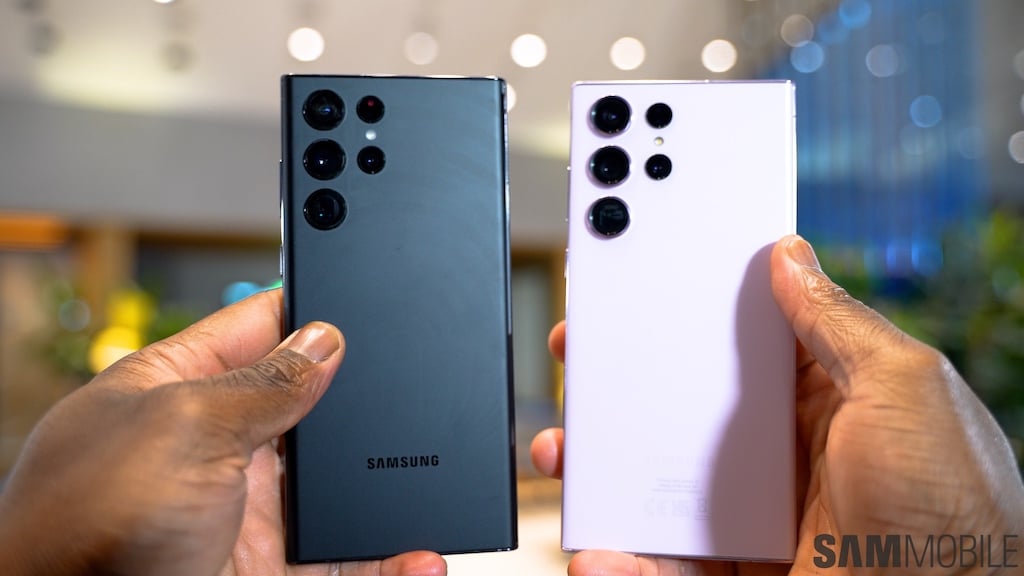Everyone (including us) got extremely excited after hearing that there won’t be Exynos versions of the Galaxy S23, Galaxy S23+, and Galaxy S23 Ultra. Samsung’s newest smartphones exclusively use a custom version of the Snapdragon 8 Gen 2 processor, called Snapdragon 8 Gen 2 for Galaxy. And this chipset has done wonders for Samsung.
Early reports and reviews show that the Snapdragon 8 Gen 2 for Galaxy is the fastest chipset available for Android smartphones. It outdoes every other Android smartphone in both CPU and GPU-focussed tasks. In fact, the chipset offers better gaming performance than the A16 Bionic chipset inside Apple’s priciest smartphone right now, the iPhone 14 Pro Max. Even in CPU performance, it comes quite close to the A16 Bionic. And battery life has been surprisingly good as well. Wonderful, isn’t it? This is great news for Samsung fans, but it also shows Samsung’s problems with Exynos chipsets.
Samsung should overhaul Exynos chips or continue using Snapdragon

Exynos chips haven’t been on par with competing Snapdragon processors for over half a decade now. They’ve been lacking in either raw power or power efficiency or both, creating different experiences for those who are using Exynos-powered Galaxy phones and those using Snapdragon-equipped Galaxy devices.
Despite working on Exynos chips for years, Samsung (System LSI) hasn’t been able to match Qualcomm’s chips (and lately, even MediaTek). It isn’t completely clear whether the problem lies in the chipset design or Samsung’s chip manufacturing process. Whatever the case, Samsung needs to completely overhaul its in-house chips if it ever plans to bring them back with its future phones and tablets.
Rumors claim that Samsung plans to use Snapdragon chips in all Galaxy S24 series phones, as well. This means a lot of people will use Snapdragon-powered flagship Galaxy phones over these two years, and the last thing they would want is to go back to subpar Exynos processors. So, Samsung either needs to improve Exynos chips in such a way that they’re better than their Snapdragon counterparts or continue using Snapdragon processors until it can’t make competing chips.
Something is cooking inside Samsung and its plan better work
![]()
It is rumored that Samsung’s mobile business, Samsung MX, has created a separate chip-making team that will work on in-house processors. This “dream team” of over a thousand engineers and experts will reportedly work on designing a processor that’s tailor-made for Galaxy smartphones. Some reports claim that System LSI (which currently makes Exynos chips) will still make Exynos chips, but the newly created team within Samsung MX will work with System LSI’s team at a deeper level to bring features that Galaxy phones need and optimize the chipset.
If this plan works, Samsung should be able to bring a much better processor to its future phones. The first such in-house processor is reportedly being developed for the Galaxy S25, which will be launched in 2025. In fact, the plan has to work. Customers who bought Exynos-equipped Galaxy phones have been burnt several times in the past, and if the Galaxy S25’s Exynos chip fails to live up to standards, buyers (at least the ones care about a phone's specs) might lose their trust in Samsung chips forever.
Even from the business perspective, Samsung needs an overhaul of Exynos processors to work. Due to its dual-sourcing strategy, the South Korean firm has been able to get Qualcomm chips at lower prices. If there are no Exynos chipsets in the future, Samsung won’t have enough negotiating power to get better prices from Qualcomm, which will likely end up hurting customers in the long run by causing an increase in the overall price of smartphones.

